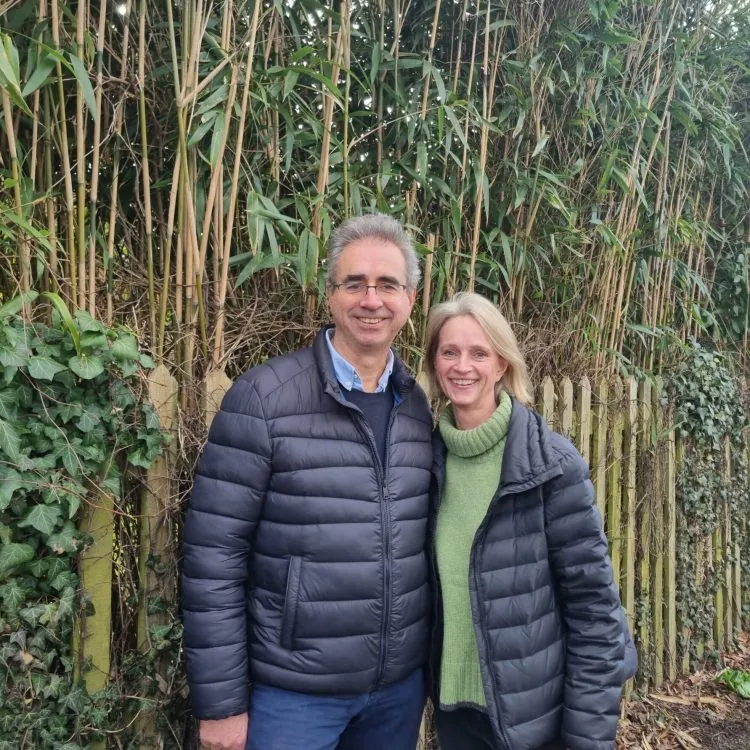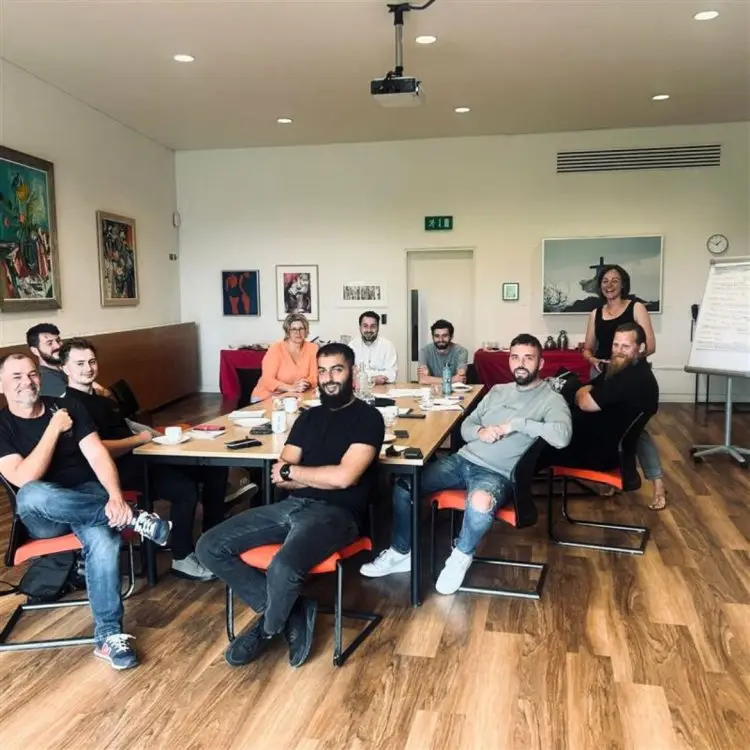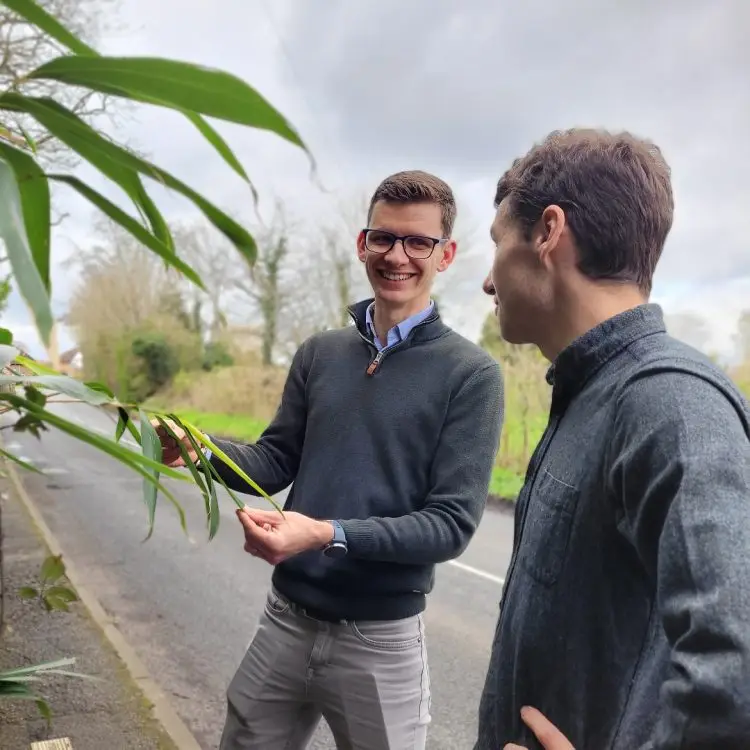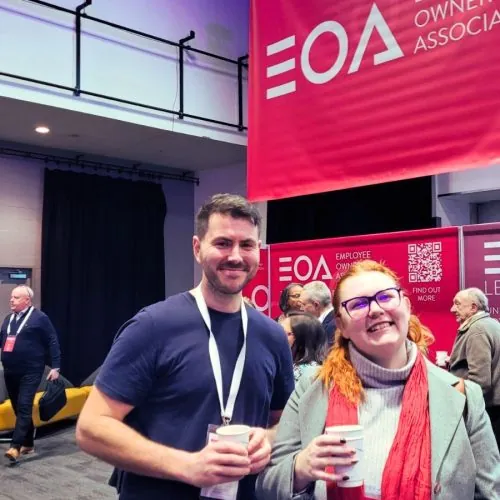100% Employee owned
Being a Partner in the Environet EOT means a shared responsibility for ensuring the success of the business in return for a share in the reward, be that financial, or in working conditions.
On the 31st July 2020, Environet UK Ltd became an employee owned business. It is 100% owned by its staff, who have a vested interest in its success. It is widely understood by our Partners that to achieve the rewards, they must work collectively to ensure that the business thrives.
- Ownership was transferred into an Employee Owned Trust (EOT), the beneficiaries of the Trust being the company’s employees – The Partners.
- Founder, Nic Seal remains in the business to support and guide the Directors and continues in his role of Trustee.
- The Trust is made up of 3 key stakeholder groups – The EOT Trustees, The Board of Directors and the Partners. Each has a key part to play in ensuring the success of the business as a whole.

Why employee ownership?
Environet has grown from a start-up in 1996 to a market leader in the management, control and removal of invasive plants, such as Japanese knotweed. The business has grown organically, thanks mainly to a loyal and committed workforce, as well as our supportive commercial and residential customers.
Nic had been at the helm for 25 years, driving the business forward, improving its services and building up an unrivalled reputation. Looking to the future, Nic realised that succession planning was imperative to safeguard the future of the business. He wanted to ensure 3 things;
- LONGEVITY: That the success of the business for at least another 25 years, via sustainable growth.
- INDEPENDENCE: That Environet’s values and independence were protected.
- SECURITY: That the business remained well capitalised and financially secure, and to avoid saddling the business with debt.
“The employee ownership model, specifically an Employee Ownership Trust, satisfied all our wishes. It recognises the hard work and commitment of our staff and by rewarding them as stakeholders and should motivate them even further to deliver the best possible customer experience.”
Nic Seal, Founder

Our Employee Council
In early Spring 2023, the Independent Trustee on the EOT Board raised a motion to form an Employee Council to help Environet in its journey to better facilitate employee contribution towards its success. In July 2023, a staff collective, representing the entire business came together to shape the Partner Representative Group. In September that year, our employee council was founded.
The Partner Representative Group (PRG) consists of 5 nominated Partners, with a tenure ranging between 12 and 18 months, who serve as a link between both the Board of Directors and the Board of Trustees through the Employee Trustee. They work to advance the interests of all Partners and contribute to enhancing our company as a successful employee owned business and an excellent workplace.
To do this, the group focuses on:
- Representing Partners’ interests actively.
- Facilitating the exchange of ideas and information.
- Advocating for Employee Ownership.
- Engaging and communicating effectively with stakeholders.
- Collaborating with the Employee Trustee to influence the company’s future and sustainability.
- Encouraging Partners to align with Environet’s cultural values.

What our employees think
“When Employee Ownership Trust (EOT) was initially introduced at Environet, there was no real understanding from us, employees, of what it meant, other than a potential share in quarterly profits. 3 years later, although we remain in the early stages of our journey, there is now a clearer framework for employees to share their concerns, express their views, and trust that these will be acknowledged and discussed. This more inclusive approach makes a real difference in our jobs, as we all feel heard and encouraged to speak up every day.” Ceri, Contracts Manager.
“I feel proud to work for an Employee owned business, as it feels it’s not just Environet’s name on the door, it’s ours.” Ed, Site Supervisor.

The bigger picture
Employee ownership is not new. The most cited example is the John Lewis Partnership, founded in 1929. There are now over 1400 employee owned companies in the UK, some notable examples including Riverford Organic Farmers, Richer Sounds and Arup Group.
According to the Employee Ownership Association, the employee owned business sector adds to the diversity of Britain’s economy and contributes £30 billion annually to GDP.
Converting to employee ownership also helps to root a business in the local area, supporting jobs and the local economy.
Deb Oxley, Chief Executive of the Employee Ownership Association, said: “We congratulate Environet on its move to employee ownership – sustaining its values and independence for the longer term.
“Businesses that give employees a stake and a say build trust and shared responsibility, therefore uniting leaders and employees behind a common purpose. This leaves the business in a better position to flex and adapt – key qualities needed to help the UK Build Back Better.”

Start fixing your invasive plant problem today by requesting a survey
Request a survey
Rest assured, where invasive species are identified at an early stage and tackled correctly, problems can usually be avoided. Our specialist consultants complete thorough surveys to identify the extent of the problem. Our plans aren’t one-size-fits-all; they’re customised to tackle the invasive species at your property effectively, taking account of all of your requirements.
GET IN TOUCH
Contact us
Our team of experts is available between 9am and 5:30pm, Monday to Friday to answer your enquiries and advise you on the next steps
Want a survey?
If you already know you have an invasive plant problem, you can request a survey online in less than two minutes by providing a few brief details. A member of the team will swiftly come back to you with further information and our availability.
Need quick plant identification?
Simply upload a few images of your problem plant to our identification form and one of our invasive plant experts will take a look and let you know, free of charge what you are dealing with. We’ll also be there to help with next steps where necessary.

